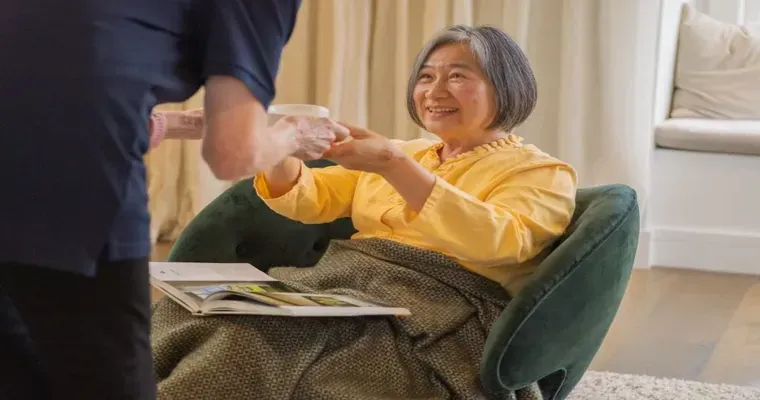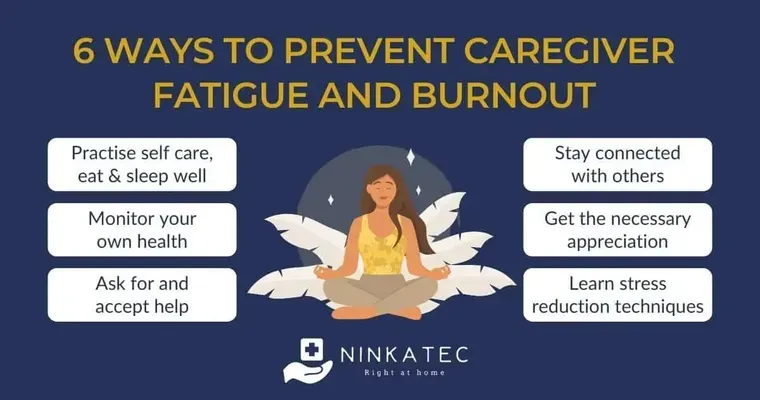Caring for a loved one is an incredibly rewarding yet demanding responsibility, especially for an "older caregiver". While the desire to provide support and love is commendable, it can often lead to "caregiver burnout" if the caregiver does not prioritize her own well-being. Understanding how to help an older caregiver accept the need for "respite care" is crucial for maintaining her health and the quality of care she provides. Here are some effective strategies to facilitate this important transition.
Acknowledge the Emotions
The first step in helping an older caregiver accept the need for respite care is to acknowledge her feelings. Caregivers often experience guilt or fear when considering taking a break. Validating these emotions can create an open dialogue, making it easier to discuss the benefits of respite care. Encourage her to express her concerns and reassure her that seeking help does not diminish her love or commitment to her loved one.
Educate on the Importance of Self-Care
Many older caregivers may not fully understand the importance of self-care. Providing information about "caregiver burnout" can be enlightening. Explain that taking time for herself can actually improve her capacity to care for her loved one. Discuss the long-term effects of neglecting personal well-being, including health issues and decreased emotional resilience. Sharing articles, resources, or statistics about the benefits of "respite care" can help solidify the importance of this self-care necessity.
Highlight the Benefits of Respite Care
When discussing respite care, emphasize its numerous benefits. Explain how it allows caregivers to recharge, reducing stress and preventing burnout. Highlight that respite care can take many forms, including in-home care, adult day care, or short-term stays at a facility. By presenting these options, caregivers may find it easier to accept the idea of taking a break. Remind her that respite care not only helps her but also ensures that her loved one continues to receive quality care.
Share Personal Experiences
If you or someone you know has benefited from respite care, sharing those experiences can be incredibly impactful. Hearing about the positive outcomes and relief that comes from taking a break can encourage an older caregiver to consider this option. Personal stories can help demystify respite care and provide a sense of reassurance that it is a viable and beneficial choice.
Offer Support in Finding Services
The logistics of arranging respite care can be overwhelming, especially for an older caregiver. Offering to assist her in researching and finding appropriate services can ease this burden. Help her navigate through local options and provide companionship during the initial visits or consultations. This support can alleviate anxiety and make the transition to respite care feel more manageable.
Encourage a Trial Run
Sometimes, the idea of committing to regular respite care can be daunting. Encourage the caregiver to try a short, trial period of respite care. This could be a weekend or a few days. Experiencing the positive effects of taking a break may help her see the value in making respite care a regular part of her schedule. After the trial, discuss how she felt and whether the experience met her expectations.
Foster a Supportive Environment
Creating a supportive environment is essential for encouraging an older caregiver to accept respite care. Family members and friends can play a significant role by expressing their support and understanding. Encourage open discussions within the family about the importance of respite care and how it benefits everyone involved. A united front can make the caregiver feel less isolated in her decision.
Conclusion
Helping an older caregiver accept the need for respite care is a delicate yet vital process. By acknowledging her feelings, educating her about self-care, and providing support, you can empower her to prioritize her own well-being. Remember, taking a break is not a sign of weakness but a necessary step to ensure that she can continue to provide the loving care her loved one deserves.





